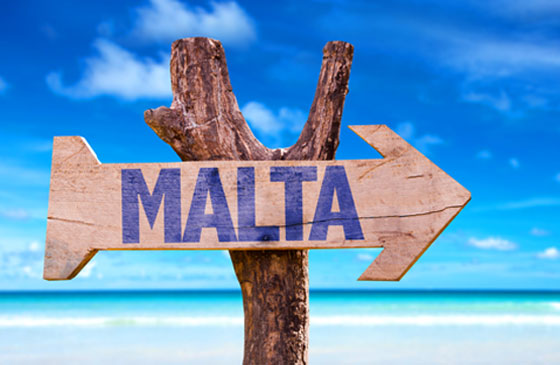MALTA PERMANENT RESIDENCE PROGRAMME (MPRP)
Malta’s MPRP grants permanent residence to eligible third-country nationals who meet due-diligence, contribution, and property requirements and maintain coverage and means.

Malta residency: security, opportunity, and a better life.
Permanent residence for investors and their families.
Malta (south of Italy in the Mediterranean) offers a permanent residence route for eligible third-country (non-EU) citizens and their families. Approved residents may live in Malta as long as they maintain program conditions. Permanent residents can apply for a work permit and access public services in line with resident rules.
Many applicants—business owners, investors, freelancers, and retirees—pursue Malta residence for Schengen mobility, lifestyle, and a contingency option if circumstances at home change. The MPRP does not automatically lead to citizenship; those seeking a citizenship-led route should review the Malta Citizenship by Merit (CBM) regulations.
Key facts
- Status: Permanent residence (not citizenship).
- Schengen mobility: 90/180-day visa-free travel across Schengen after approval.
- Property: Qualifying purchase from €375,000 or rental from €14,000/year.
- Contributions: Government administrative fee, government contribution, and a €2,000 philanthropic donation.
- Financial capacity: Asset and liquidity thresholds; health insurance required.
- Family: Spouse/partner, dependent children (typically up to 29 if unmarried and dependent), and dependent parents/grandparents may be included.
Eligibility checklist
- Clean background and successful due-diligence (AML/KYC).
- Asset ownership: (Option A) Assets valued at ≥ €500,000 with ≥ €150,000 liquid, or (Option B) Assets valued at ≥ €650,000 with ≥ €75,000 liquid (maintained for first 5 years).
- Qualifying property: purchase ≥ €375,000 or rent ≥ €14,000/year.
- Government administrative fee and contribution paid as required.
- €2,000 philanthropic donation.
- Health-insurance coverage for all included applicants.
- No minimum physical-presence requirement published by the government, but establishing a genuine link with the country is expected.
How to apply — steps
- Initial screening: Confidential eligibility check, AML/KYC pre-assessment.
- File preparation: Collect IDs, police certificates, financials, insurance; select property path (rent/purchase).
- Submission & due-diligence: Application filed with the government; background checks run; queries answered promptly.
- Decision & formalities: Upon approval, settle government fees/contribution, donation, and finalize property.
- Issuance: Residence cards granted; family members receive cards as included.
- Maintenance: Keep property/insurance/means; renew cards per validity and report changes.
Fees & property thresholds (summary)
| Item | Amount | Notes |
|---|---|---|
| Government administrative fee (main applicant) | €60,000 | Spouse/minor children: included; adult dependents: €7,500 each |
| Government contribution | €37,000 | Non-refundable contribution |
| Philanthropic donation | €2,000 | Approved Maltese organization |
| Property — purchase | ≥ €375,000 | Hold ≥ 5 years |
| Property — rental | ≥ €14,000 / year | Lease ≥ 5 years |
| Legal/Professional fees | Custom | Depends on family composition — request quotation |
For a quick estimate, try our MPRP Cost Calculator.
Family, work, and mobility
- Family inclusion: Spouse/partner, dependent children (typically to 29 if unmarried & dependent), dependent parents/grandparents.
- Work in Malta: Permanent residents may apply for a work permit.
- Education & healthcare: Access to Malta’s systems as residents (citizen entitlements differ).
- Schengen travel: 90/180-day visa-free movement post-approval.
Frequently asked questions
MPRP Answer Library
Fees & Property thresholds
One-page summary of government administrative fee, government contribution, €2,000 donation, and qualifying rent/purchase thresholds (5-year minimums).
Family benefits & inclusion
Who can be included (spouse/partner, dependent children, parents/grandparents) and what residents can access in education, healthcare, work permits, and Schengen mobility.
Steps & timeline
From screening and file preparation to submission, due-diligence, approval formalities, issuance, and ongoing maintenance—what to expect and how to stay on track.
Document checklist
IDs and civil status docs, police certificates, financials and liquidity, insurance, and qualifying property documents—plus tips to avoid common delays.
Sources & official information
- Malta residency: Residency Malta Agency — official program authority.
- Malta citizenship: Komunità Malta — citizenship authority (for CBM and nationality matters).
- Schengen Area background: Wikipedia overview (general reference).
Refer to current government circulars/legal notices; figures and thresholds can change.
